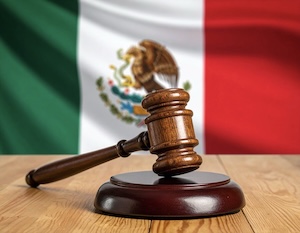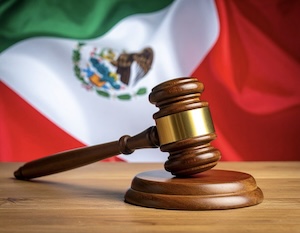President Trump Cuts Certain Reciprocal Tariffs on Agricultural Products

On November 14, 2025, President Trump issued an Executive Order exempting certain agricultural products from the reciprocal tariffs. The exemptions for certain agricultural products went into effect on November 13, 2025.
New Mexican Customs Law – Nueva Ley Aduanera de Mexico

On November 19, 2025, a Decree amending, adding and repealing various legal provisions of the Mexican Customs law was published in the Diario Oficial de la Federacion (Mexican Official Gazette). This reform will enter into force on January 1, 2026. Although the Customs Law has been amended multiple times in the last 30 years, this reform is widely considered the most significant since December 15, 1995.
Developing a Tequila Brand for Export from Mexico

The development of a tequila brand begins with a foundational step: registering a trademark in Mexico, the United States, or any other intended markets. However, trademark protection is only the starting point. Building a tequila brand requires a broader business and regulatory strategy involving multiple teams—Customs and trade, finance, marketing, and legal—to plan for production, cost structures, distribution, sales, and export-related compliance.
New Value Manifest/Manifestacion de Valor – via VUCEM

Beginning December 9, 2025, importers in Mexico will be required to complete and submit the Electronic Value Manifest through VUCEM (Mexico’s Electronic Single Window). This measure increases the importer’s direct participation and responsibility in determining and declaring the correct customs value of imported goods.
Tariffs, Deals, Steel, Aluminum and AI – Oh My! Welcome to the New Normal

New tariffs, changed tariffs, and reduced tariffs are announced with short notice. The duties on merchandise can change while a shipment is in the middle of the ocean. The status of free trade agreements has become uncertain. New detailed duties are assessed on steel and aluminum and their derivatives. Artificial intelligence is playing an increasing role.
Activating HTTP 402: The x402 Protocol and Legal Framework for Internet-Native Stablecoin Payments

The convergence of payment stablecoins, blockchain settlement infrastructure, and the regulatory clarity provided by the GENIUS Act of 2025 has created conditions for HTTP 402’s activation. The x402 protocol, developed by Coinbase in collaboration with Cloudflare and others through the x402 Foundation, operationalizes this long-reserved status code to enable instant, automated payments: particularly for autonomous AI agents conducting machine-to-machine commerce.
Critical Minerals Focus of White House Trade Agreements in 2025

The Trump Administration is pursuing a new style of trade management based on use of tariffs to rectify trade deficits and to set new “reciprocal” tariff rates to level the playing field for all of its trading partners. Critical minerals are a key component of the strategy, because the U.S. is heavily dependent of foreign sources for most of the critical minerals used in modern manufacturing. In response to Trump-imposed tariffs and threats of other trade actions, China has repeatedly used export controls on rare earths and other critical minerals as leverage. This article looks at the current state of critical minerals trade actions, starting with new US agreements with multiple trading partners, then reviewing international norms and proceeding through other trade actions involving critical minerals.
BIS “Affiliates Rule” Suspended One Year, But No Time to Rest

On November 10, 2025, the U.S. Bureau of Industry and Security (“BIS”) delayed the effective date of its new Affiliates Rule for a one-year period, until November 9, 2026, after U.S. and China trade talks. The Affiliates Rule, announced on September 29, 2025, expands export controls under the Export Administration Regulations (“EAR”) to extend to non-listed “affiliates” owned or controlled by listed entities (on the Entity List, the Military End User List “MEU”, or certain sanctioned parties) 50% or more in the aggregate.
Section 232 Steel & Aluminum Derivative Products Inclusion Process Expands Scope of the National Security Purpose of Section 232 Investigations

On February 10, 2025, the President issued Presidential Proclamations Under Section 232 of the U.S. Code adjusting imports of steel and aluminum into the United States. These Proclamations provided an expanded listing of steel and aluminum derivative articles but also instructed the Secretary of Commerce (Secretary) to establish a process for including additional derivative aluminum and steel articles within the scope of the ad valorem duties.
The Automotive Industry, China’s Semi Grip on Supply Chains, and General Motors 2027 Exit Strategy for Suppliers (Is a clean break even possible?)

General Motors (GM) has instructed thousands of its suppliers to phase out sourcing parts and materials from China by 2027. The exit strategy began in early 2024, with the directive gaining momentum in spring of this year, 2025. This directive is part of GM’s broader strategy to enhance supply chain resiliency and reduce exposure to geopolitical risks, particularly amid escalating, or let’s just say, continuously fluctuating, U.S.–China trade tensions.
